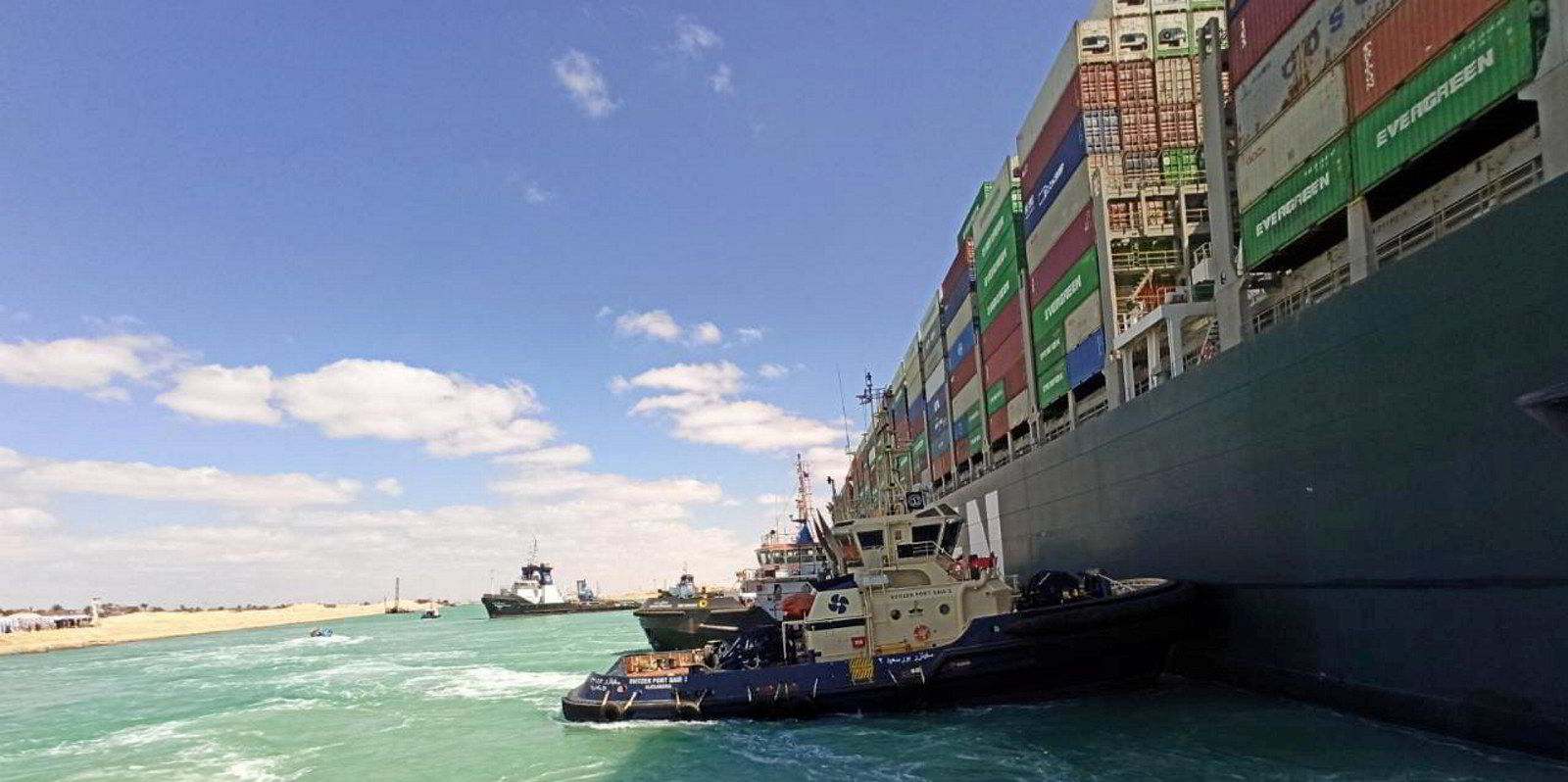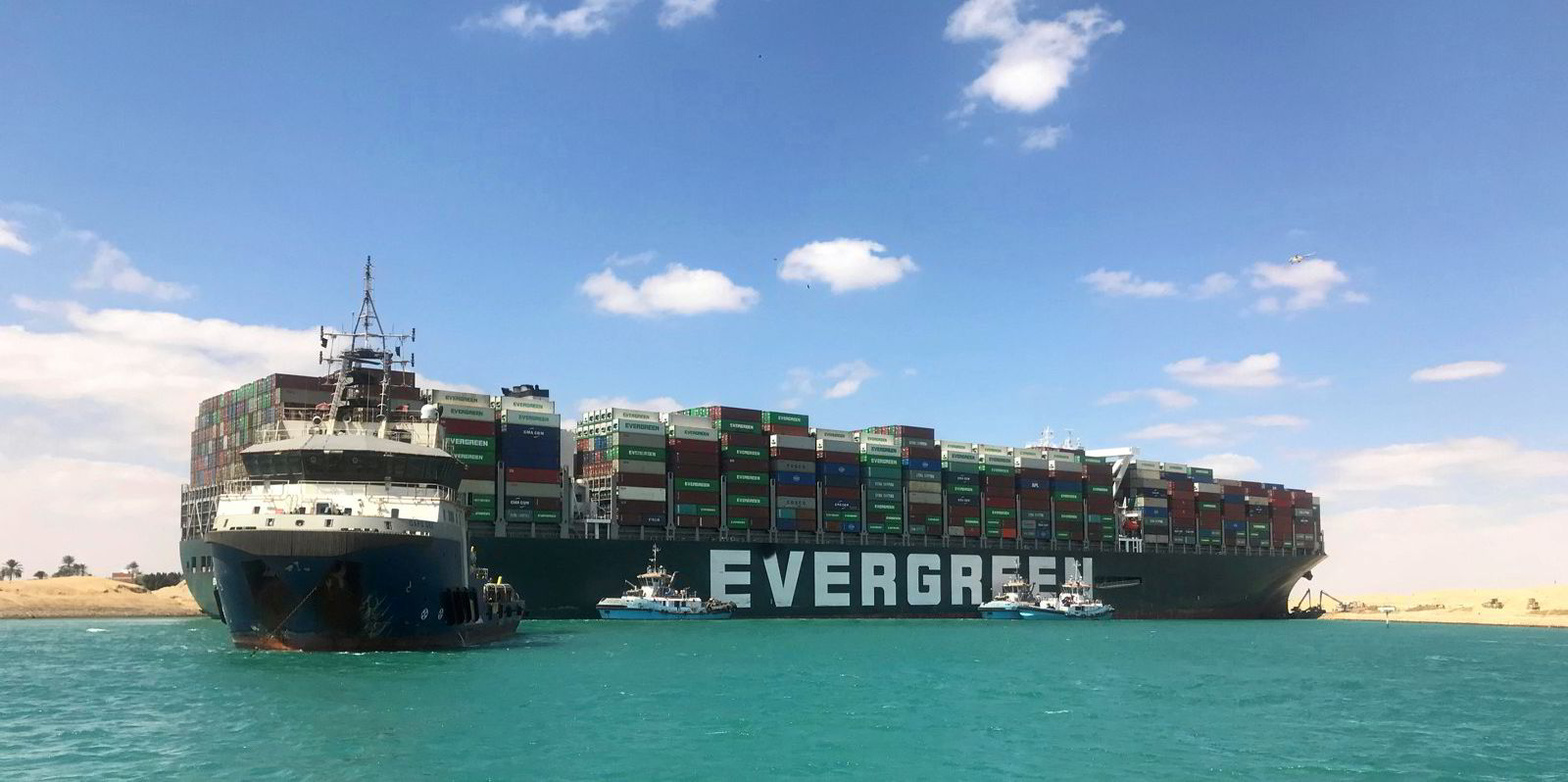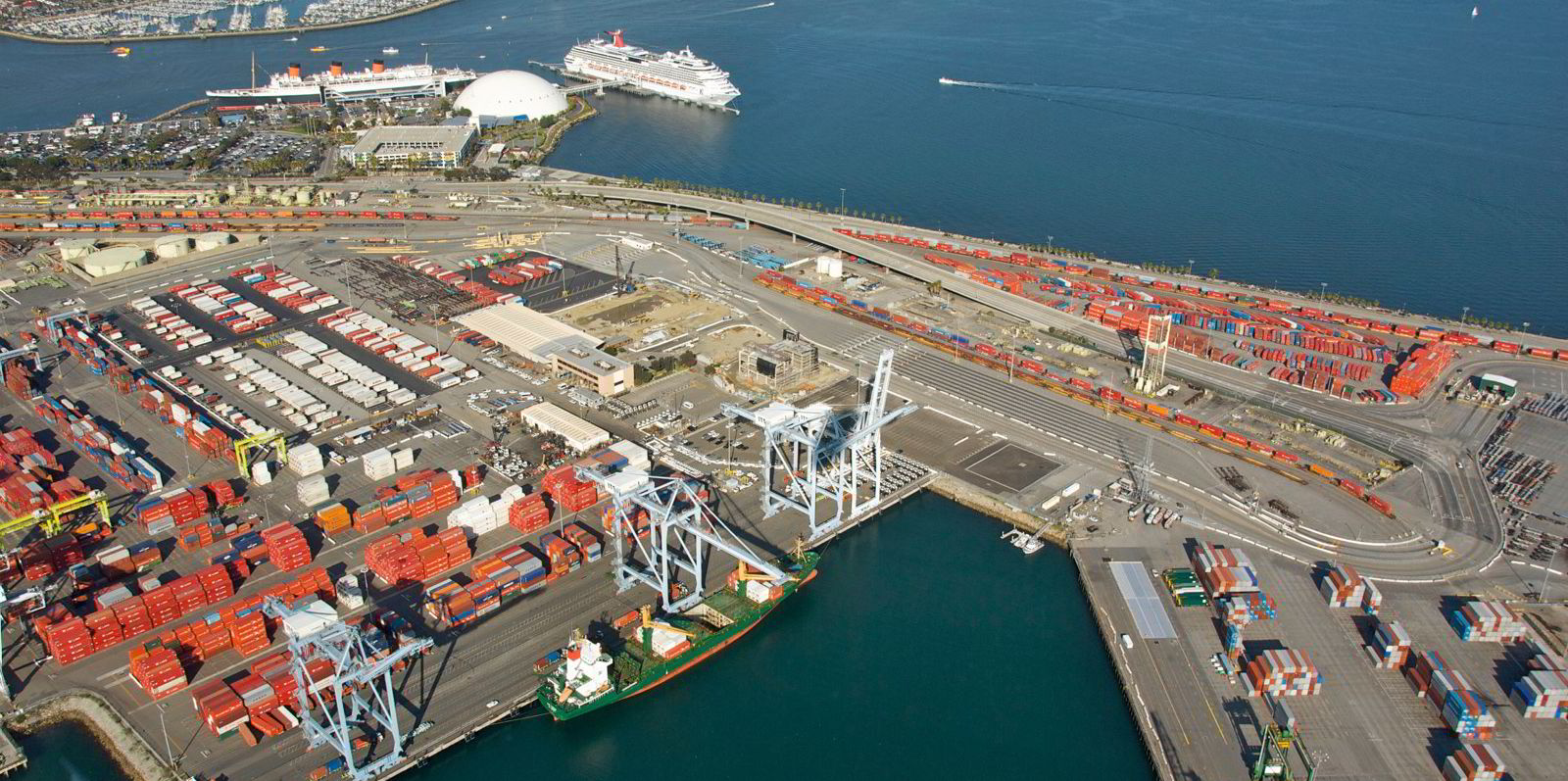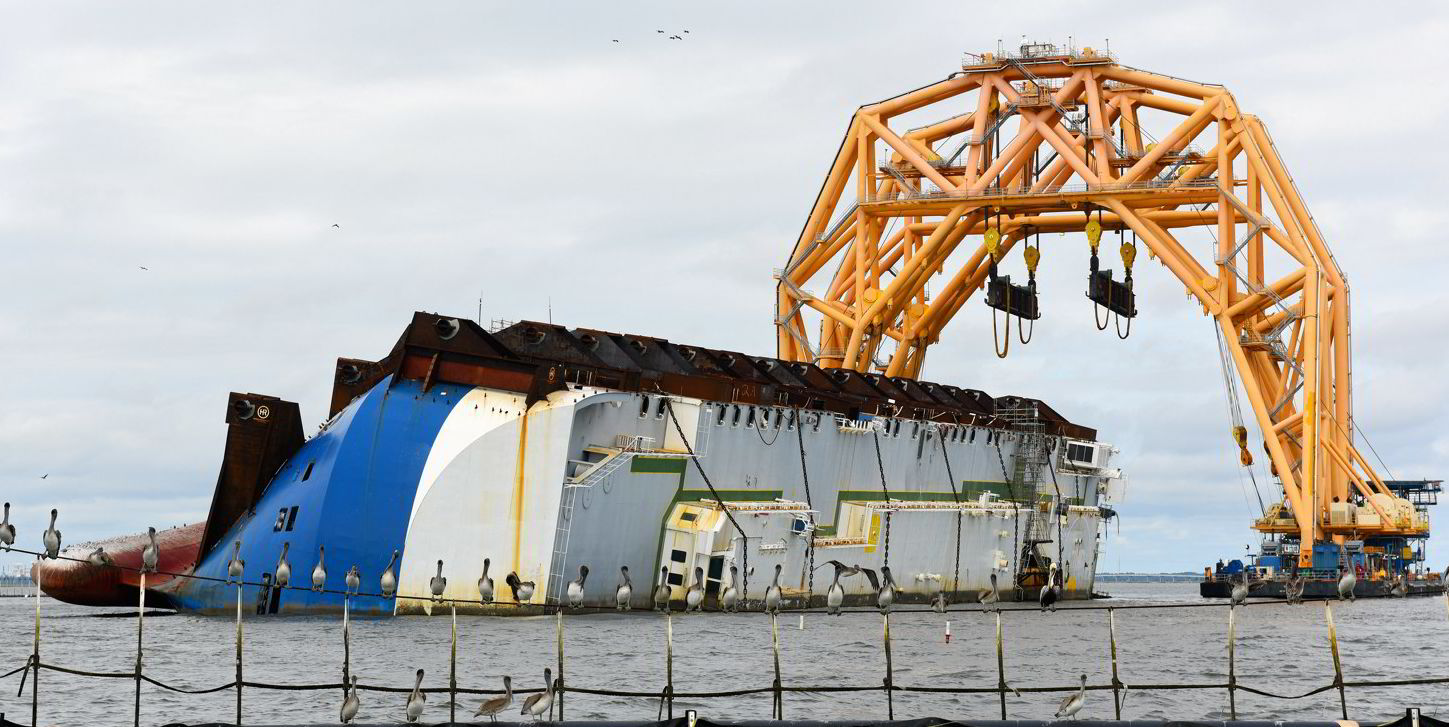Evergreen Marine could seek an early release of the cargo aboard a megaship that blocked the Suez Canal for six days in March.
On Tuesday, the canal authority won permission from an Egyptian court to seize the 20,388-teu Ever Given (built 2018) over a $916m claim against shipowner Shoei Kisen.
Evergreen, which charters the boxship, said it is investigating the scope of the court order and “studying the possibility of the vessel and the cargo on-board being treated separately”.
“Evergreen assures to do its utmost to complete the mission entrusted by its customers with all due dispatch and to keep all adverse impacts to minimal level,” the Taiwanese container line said in a statement on Wednesday.
“In order to lift the arrest order as soon as possible, Evergreen is urging all concerned parties to facilitate a settlement agreement to be reached.”
The company had said it would not be liable to shippers’ claims arising from cargo delays in accordance with an exception in carriage terms.
Major incident
The Ever Given had run aground in the canal’s southern section on 23 March, halting all traffic at the key waterway until Egyptian authorities salvaged it six days later.
In early April, the Suez Canal Authority began to seek $916m from the Japanese shipowner via private talks over the loss arising from the grounding incident.
The negotiations broke down on Monday and the canal authority subsequently arrested the boxship.
The claim amount includes $300m for loss of reputation and $300m for salvage bonus, but the bill for salvage services will be sent to Shoei and the hull underwriters separately.
The UK P&I Club, which provides protection and indemnity cover to the ship, described the claim as “largely unsupported” and lacking “detailed justification”.
“The grounding resulted in no pollution and no reported injuries. The vessel was re-floated after six days and the Suez Canal promptly resumed their commercial operations,” the insurer said in a statement.

“The P&I aspects of the claim are relatively modest, with the exception of a claim for loss of reputation, which is disputed.”
ABS, the vessel’s classification society, has declared the ship would be suitable for onward passage to Port Said for further checks.
But the Ever Given is still anchored at Great Bitter Lake due to the seizure. A crew of 25 Indian nationals remain on board.
Technical manager Bernhard Schulte Shipmanagement (BSM) said the canal authority’s decision to arrest the ship is “extremely disappointing”.
“From the outset, BSM and the crew on board have cooperated fully with all authorities,” the shipmanager’s chief executive Ian Beveridge said.
“BSM’s primary goal is a swift resolution to this matter that will allow the vessel and crew to depart the Suez Canal.”
Separate case
Shoei, through its companies Luster Maritime and Higaki Sangyo, has separately begun limitation of liability proceedings in the Admiralty Court in London.
The filing aims to establish a limitation fund via a court that is experienced in maritime lawsuits and has close proximity to the vessel insurers, according to legal experts.
Will Trustram, Clyde & Co’s legal director, said the find’s size would be about $114m based on the Convention on Limitation of Liability for Maritime Claims.
Egypt is one of the convention’s contracting states.
“Parties with claims against the registered owners arising out of the incident will now be entitled to enforce claims in England against the fund,” Trustram said.
“Presumably [Luster Maritime and Higaki Sangyo] are anticipating claims may exceed the limit hence their setting up the limitation fund.”
Trustram said the liability could be limited for a wide range of claims, including those for damage to property and consequential loss, and loss resulting from delay.
“But ultimately the circumstances of each individual case will determine which claims will be subject to the limit of liability,” he added.
“In this case, given the slightly unusual facts, there may be interesting legal questions as to the claims in respect of which the owners are entitled to limit.
“The right to limit liability is a qualified right and may be lost in some circumstances.”







